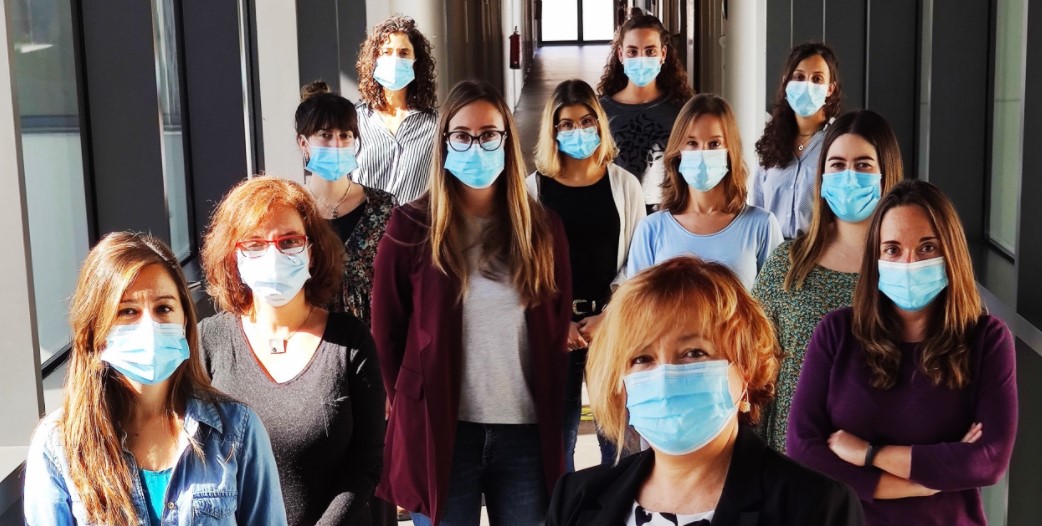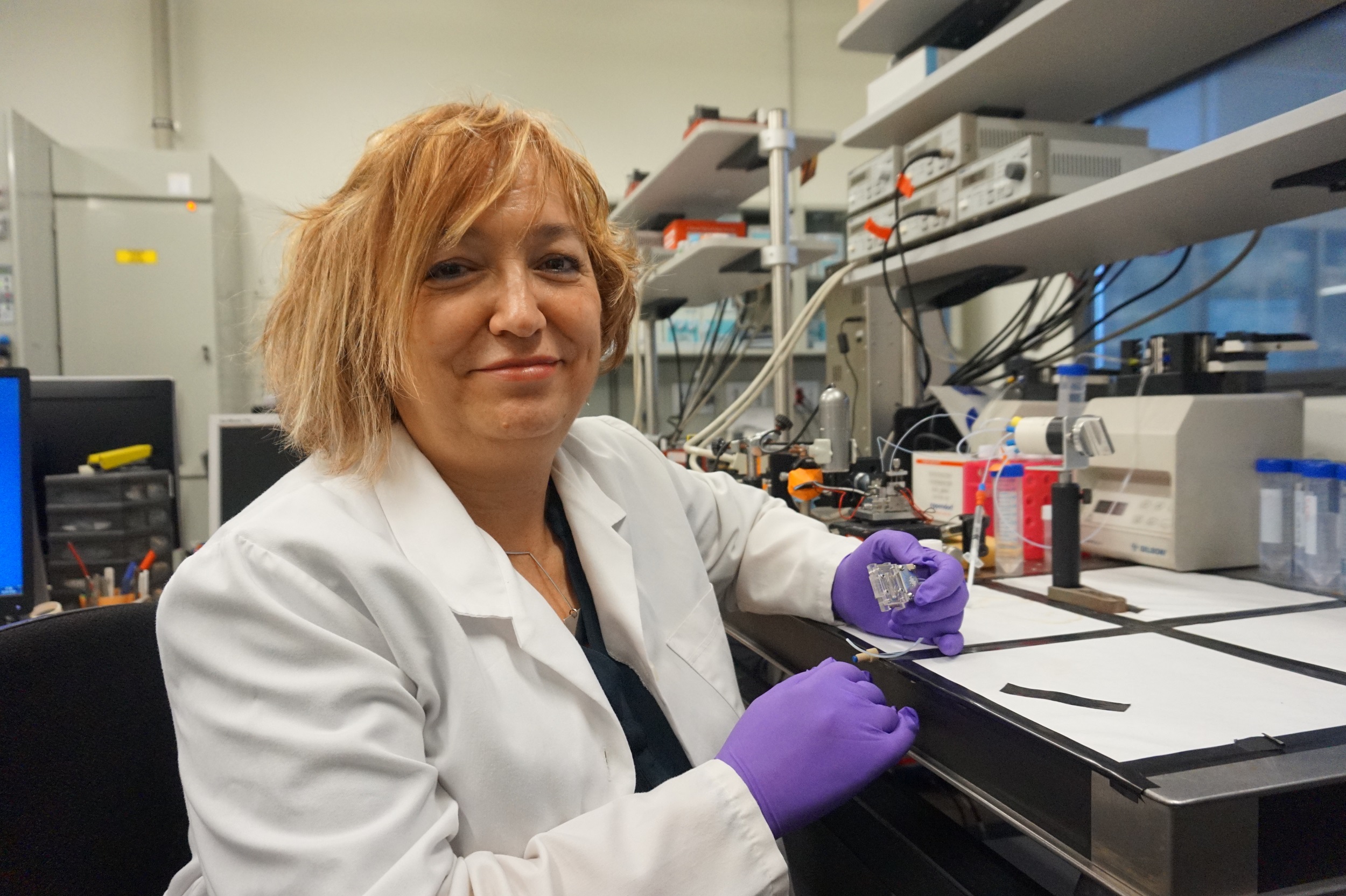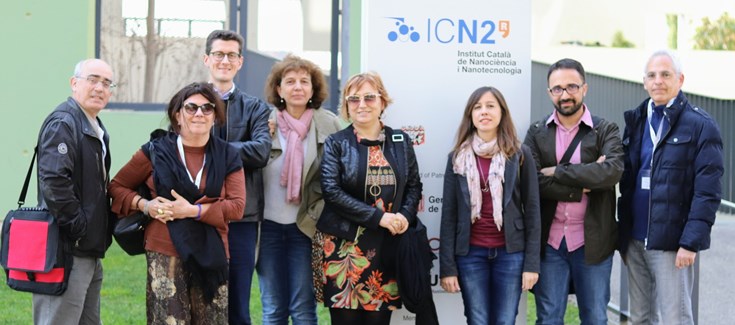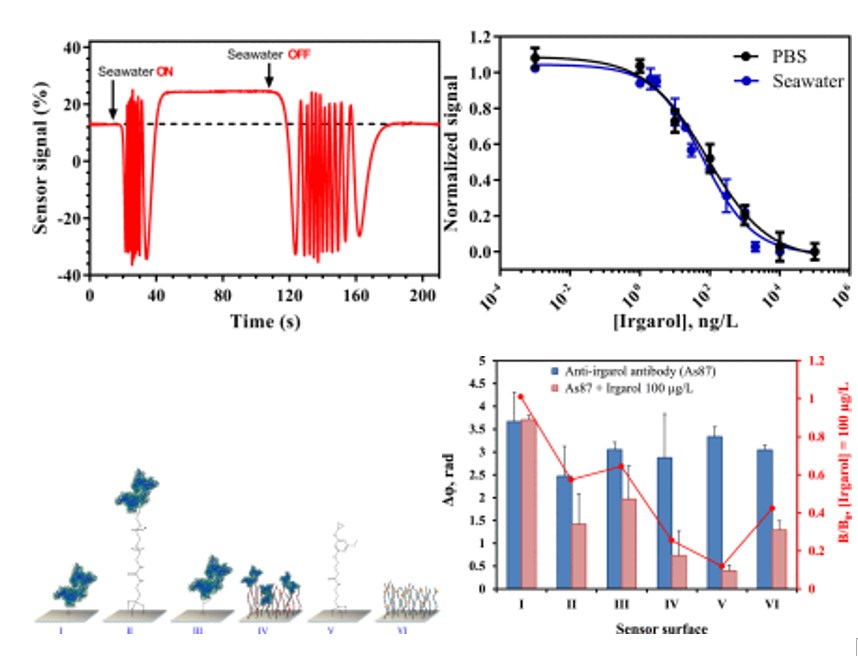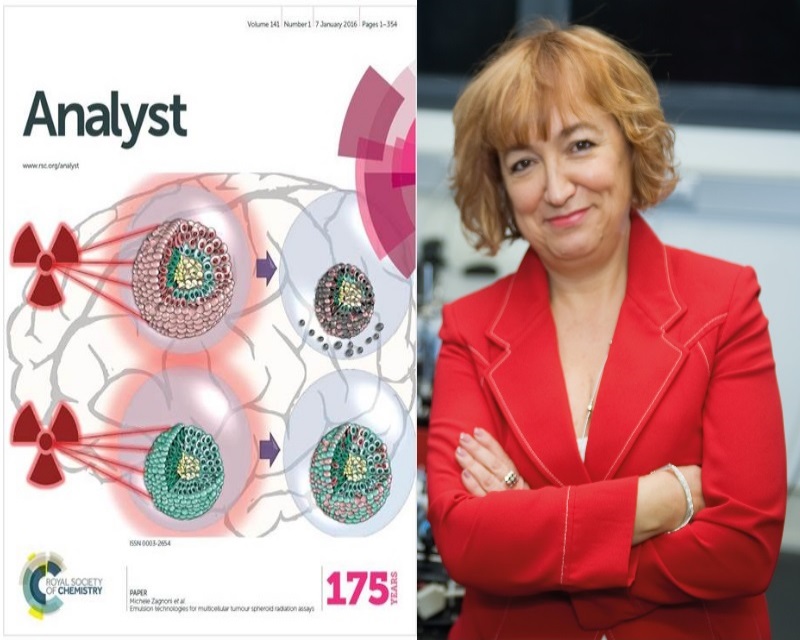Women Technologist Ada Byron Award to Laura Lechuga, Scientific Director of NANBIOSIS U4.
The organizing committee and jury of the seventh edition of the Ada Byron Prize for Technological Women, from the Faculty of Engineering of the University of Deusto, have awarded the 2020 award to Prof. Laura Lechuga Scientific Director of Nanbiosis U4 Biodeposition and Biodetection Unit of ICN2-CSIC and CIBER-BBN.
Laura Lechuga has a degree in Chemical Sciences and is currently a research professor at the CSIC of Barcelona, Head of the Group of Nanobiosensors and Bioanalytical Applications. Her research area focuses on Nanomedicine, Nanodiagnosis and the technological development of nanophotonic biosensors and their integration into portable Point-of-Care (POC) platforms, as well as their application in decentralized clinical and environmental diagnosis.
The award is aimed at women with a degree or a career in technological areas, engineering and other scientific fields that are closely related to technology.
This award aims to:
- Give visibility to women in the world of technology recognising their outstanding work, still not widely known for society at large.
- Enrich society with technological outreach events, providing female models to new generations.
- Promote technological vocations by bringing technology closer to female young people, highlighting the positive aspects, especially on female vocations.
- Make the importance of technology for economic growth and as a future value for society more socially visible.
